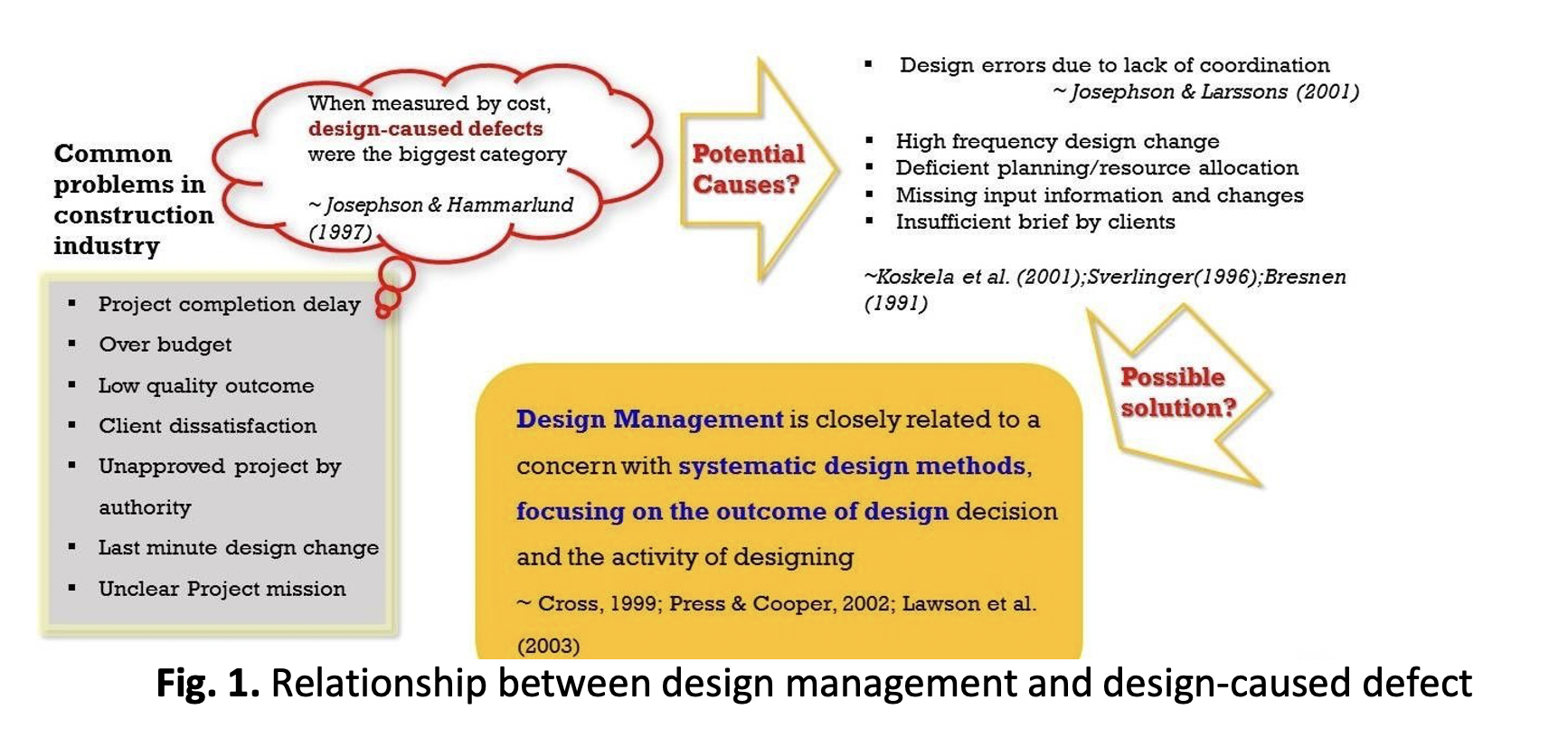Development of Theoretical Framework for Improving Implementation of Design Management Within Malaysian Construction Industry
DOI:
https://doi.org/10.37934/araset.28.3.248263Keywords:
Cost engineering, design management, project success, theoretical frameworkAbstract
Design Management is a systematic method of managing design process through integration of multiple stakeholders in a construction project. Its role and activity are about bringing ideas together, connecting, integrating, communicating, innovating and collaborating design activities, people, processes and resources that are related to the project. Project success can be measured either by objectives or subjective measures where both have their own contribution towards project management success and product outcome success. For this study, project success takes into consideration both measures. This is due to design-caused defect was found as the highest contribution in project defect when measured by cost. The aim of this research is to determine the relationship between design management and project success. For this research, the components of this theoretical framework were developed based on the theories and empirical evidence relating to design management and project success measure. The outcome shows that 41processes had been classified into 7 project stages: project initiation, preparation of design outline, conceptual design, detail design development, procurement, construction and project operation and 6 components of success measure had been identified: Objective measure consists of time and cost and subjective measures look into quality, health and safety, functionality and end-user’s, client’s, design teams and construction team satisfaction.Downloads

Downloads
Published
2022-11-30
How to Cite
Mahanim Hanid, Nor Faizah Ismail, Kho Mei Ye, Othman Mohamed, Lilawati Ab Wahab, & Abdullah Pirus Leman. (2022). Development of Theoretical Framework for Improving Implementation of Design Management Within Malaysian Construction Industry. Journal of Advanced Research in Applied Sciences and Engineering Technology, 28(3), 248–263. https://doi.org/10.37934/araset.28.3.248263
Issue
Section
Articles




























